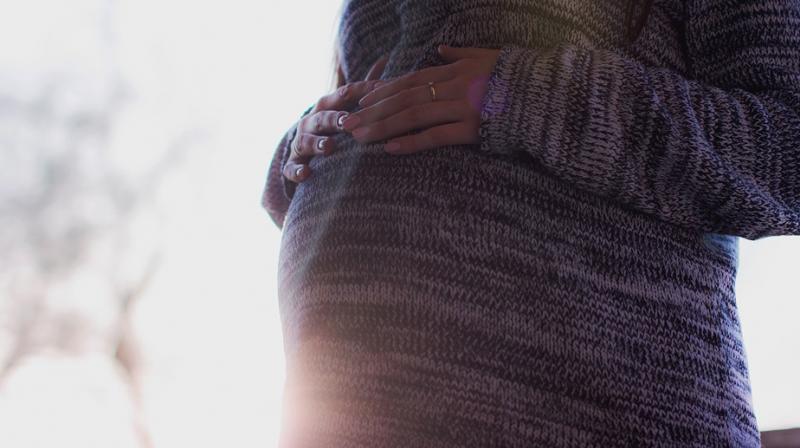Food-borne bacterium may cause miscarriage threat early in pregnancy

Washington D.C.: Beware to-be mothers! Listeria, a common food-borne bacterium, may pose a greater risk of miscarriage in the early stages of pregnancy than appreciated, warns a study.
Researchers from the University of Wisconsin-Madison in US showed that pathogens affect fetal development and change the outcome of pregnancy."For many years, listeria has been associated with adverse outcomes in pregnancy, but particularly at the end of pregnancy," said Ted Golos.
"What wasn't known with much clarity before this study is that it appears it's a severe risk factor in early pregnancy," Golos added, "It's striking that mom doesn't get particularly ill from listeria infection, but it has a profound impact on the fetus."The study appeared in the journal mBio.
"The problem with this organism is not a huge number of cases. It's that when it is identified, it's associated with severe outcomes," said Charles Czuprynski, a UW-Madison professor of pathobiological sciences and director of the UW-Madison Food Research Institute.
Pregnant women are warned to avoid many of the foods, among them unpasteurised milk and soft cheese, raw sprouts, melon and deli meats not carefully handled, that can harbour listeria, because the bacterium is known to cause miscarriage and stillbirth and spur premature labour.But when it occurs, listeria infection in pregnancy may go unnoticed. The few recognisable symptoms are nearly indistinguishable from the discomfort most newly pregnant women feel.
Sophia Kathariou, a North Carolina State University professor of food science and microbiology, provided a strain of listeria that caused miscarriage, stillbirth and premature delivery in at least 11 pregnant women in 2000.Four pregnant rhesus macaques at the Wisconsin National Primate Research Center were fed doses of the listeria comparable to what one might encounter in contaminated food.None of the monkeys showed obvious signs of infection before their pregnancies came to abrupt ends.
But, in tissue samples taken after each monkey experienced intrauterine fetal death, Wolfe found listeria had invaded the placenta -- the connection between the mother-to-be and the fetus, which usually prevents transmission of bacteria -- as well as the endometrium, the lining of the uterus."In that region, there's a rich population of specialised immune cells and it is exquisitely regulated," said lead researcher Bryce Wolfe."When you introduce a pathogen into the midst of this, it's not very surprising that it's going to cause some sort of adverse outcome disrupting this balance," Wolfe added.
The researchers believe the inflammation caused by the maternal immune response to the fast-moving listeria also affects the placenta, keeping it from protecting the fetus.The results suggest listeria (and perhaps other pathogens) may be the culprit in some miscarriages that usually go without diagnosed cause, but the bacteria's stealth and speed may still make it hard to control.
"There are effective antibiotics available. It is treatable and the fetus may be infected by the time anyone realises the mother was infected," he stated.

